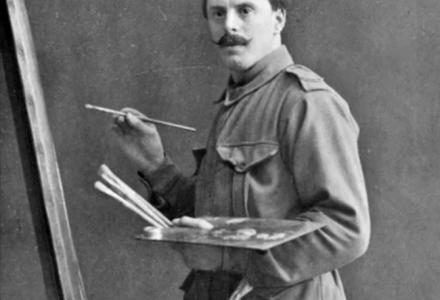In July 1917, the newly formed Women’s Compulsory Service Petition League met in Brisbane’s School of Arts Hall. Around three hundred women had crammed into the building. The League called for the conscription of all eligible men, demanding that those who had thus far ‘shirked’ their duty be sent immediately to the war.
Not all the women in the Hall that night agreed. Margaret Thorp, feminist, pacifist, and Quaker rose to move an amendment. A cluster of around thirty supporters sat around her. With some difficulty, Thorp made her way towards the platform. She reminded the Chair that the conscription of human life was a grave and contentious matter and that the Australian electorate had voted ‘overwhelmingly’ against it.
Thorp had spoken for barely a minute before the interjections began. As voices were raised, scuffles broke out and the meeting descended to pandemonium. Those who opposed conscription were called disloyal, pro-German, un-Australian. As Miss Thorp continued to speak, she was ‘punched and scratched, thrown off the platform, rolled on the floor, kicked, punched, and scratched again, and at last was carried, pushed or thrown out of the doorway’.
Born into a Quaker family, Margaret had been schooled in pacifist principles since childhood and taught to value free speech and independent thought. When war broke out most of the country responded with enthusiasm, but Margaret called on Australians to remember the cost of human conflict.
Margaret’s beliefs and protests were, under the War Precautions Act, deemed prejudicial to recruiting and Margaret herself became the subject of military surveillance. In a country that claimed to be fighting for freedom, her activities were monitored, her correspondence intercepted, and her home raided in search of anti-war literature.
Margaret Thorp showed the moral courage to stand up for her beliefs. And the physical courage to leave Australia for war-torn Europe in 1919 and aid an army of starving refugees. Margaret was amongst the first aid workers to visit Soviet Russia, a country stricken by drought, famine, disease and a bitter civil war.
All her life, Margaret Thorp would work to aid the disadvantaged. Margaret Thorp was a woman whose friendship knew no boundaries, who worked to bring all war to an end.



